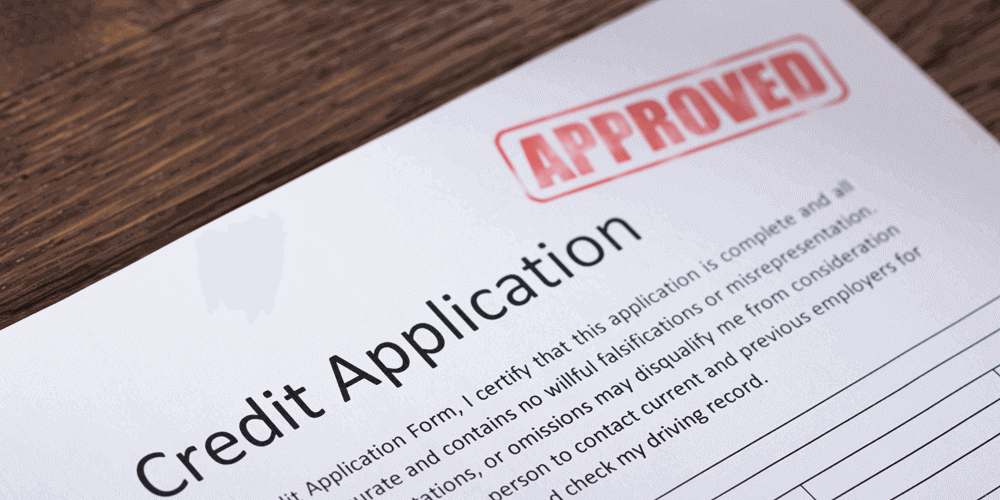Your Mortgage Application Was Denied: Here’s What to Do


Highlights:
- After denying your mortgage application, lenders are legally required to provide a written explanation for their decision if you ask for one.
- Common reasons a mortgage application is rejected include low credit scores, fluctuations in your income and a high debt-to-income ratio.
- Whatever the reason your application was denied, there are steps you can take to get back on the path to homeownership.
If your mortgage application has been rejected, you may be unsure of what steps to take next. Luckily, a mortgage denial doesn’t have to mean the end to your dreams of homeownership.
Find out why your mortgage application was denied
What is the first thing you should do after your mortgage application is denied? Take a few deep breaths — then contact your lender.
After rejecting your mortgage application, lenders are legally required to provide a written explanation for their decision if you ask for one. Known as an adverse action letter, the explanation includes why you were refused credit, which of the three nationwide consumer reporting agencies sourced your credit report and access to a free credit report for your review.
Having this information is critical if you hope to apply for another mortgage in the future. Once you learn why you were denied, you’ll know how you can begin working on your financial profile to make yourself a more appealing borrower.
Common reasons mortgage applications are rejected include:
- High debt-to-income (DTI) ratio. Your DTI ratio, expressed as a percentage, is the total amount of debt payments you owe every month divided by your gross monthly income. In a lender’s eyes, the higher your DTI ratio, the more likely you’ll run into trouble making mortgage payments. Most lenders prefer a DTI ratio around 40% or less. So, if you’re already carrying a high level of debt relative to your income, that could be a red flag for lenders.
- High loan-to-value (LTV) ratio. Your LTV ratio compares the size of the mortgage you’re hoping to obtain to the appraised value of the property you’re attempting to buy. It also considers any amount of money you’ve set aside for your down payment. In general, a lower LTV ratio makes you appear less risky to lenders. If your LTV ratio is too high, meaning you’re asking for a mortgage that is close to the value of your desired property, lenders may deny the request.
- Low credit scores. Your mortgage lender uses your credit scores as one factor to help determine your trustworthiness as a borrower. The lower your credit scores are, the less confidence a lender is likely to have in your ability to repay the loan.
- Fluctuations in income and changes to employment status. Changes in income may change your DTI ratio and signal instability. Lenders generally prefer mortgage applicants to have held a salaried, full-time position at their company for two years or more. If you’ve recently changed jobs or have a history of doing so, this may affect your mortgage application.
- An increase in interest rates. If interest rates go up during the mortgage application process, the loan itself may become more expensive. This could suddenly push the mortgage out of your financial reach, especially without a corresponding increase in your income.
6 ways to improve your chances for approval
The good news is that whatever the reason your application was denied, there are steps you can take to get back on the path to homeownership. These strategies may help you improve your creditworthiness and prepare you to reapply.
Pay off debt. Many mortgages are rejected because of a high debt-to-income ratio. So, paying down existing debt is one of the best ways you can improve your chances of approval. You might pay off outstanding balances on your credit cards or regularly exceed the minimum payment on your personal or student loans. Take a careful look at your budget and try to find extra money where you can — every dollar helps.
Improve your credit scores. Higher credit scores typically increase your chances of being approved for a loan. They may also help you qualify for more favorable interest rates. If your credit scores aren’t where they need to be, consider what you can do to improve them. Make loan and credit card payments on time, reduce your total debt and try to keep your credit utilization rate (the amount of revolving credit you’re using divided by the total credit available to you) below 30%. Keep in mind, however, that improving your credit scores is not an overnight process and will take patience and consistency.
Build your down payment. It’s generally recommended that your down payment be at least 20% of your desired property’s sale price. But the amount you’re required to put down varies depending on your credit scores and overall financial situation. Generally speaking, the more cash you have to dedicate toward a down payment, the better. A larger down payment will also help lower your LTV ratio, which can make you more appealing to a lender.
Avoid expensive purchases. During the mortgage application process, hold off on buying any expensive items on credit. Even if a purchase involves something you need for your potential new home, it’s best to save your money until after you’ve received final mortgage approval.
Consider a different property or location. It’s important to hunt for a home that satisfies your personal needs but is also financially realistic. For example, you may want to look around for less expensive properties. You might also consider different areas of town where property values are lower or target a home that’s smaller and more affordable than you had originally planned.
Try different lenders and loan programs. Shop around for lenders that are willing to work with borrowers with an imperfect financial profile. For example, local banks and credit unions may be more flexible than a national mortgage company. Federal Housing Administration (FHA) loans may also be an option for some borrowers. Backed by the federal government, FHA loans are easier to qualify for and are usually less expensive.
When should you apply again?
Deciding when to reapply depends on why you were denied in the first place. Your lender will likely be able to tell you how long you should wait before submitting another application, but generally it’s wise to hold off until you correct the circumstances that lead to your first denial. If you need to reduce your DTI ratio or raise your credit scores, it may take some effort and time for those changes to be reflected.
When you’re ready to fill out another mortgage application, there’s no need to worry. Just be sure to monitor your credit scores and credit reports, and remain in constant, open communication with your loan officer through all stages of the process.
You can receive free Equifax credit reports with a free myEquifax account. You can also get free credit reports from the three nationwide consumer reporting agencies at AnnualCreditReport.com.
With hard work, careful planning and a little know-how, home ownership may be just around the corner.

Sign up for a credit monitoring & ID theft protection product today!
For $19.95 per month, you can know where you stand with access to your 3-bureau credit report. Sign up for Equifax CompleteTM Premier today!



